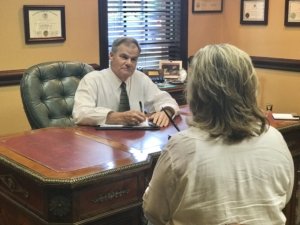The process to get Social Security Disability benefits can seem daunting. Let’s break it down step by step:
THE SOCIAL SECURITY DISABILITY PROCESS
Stage #1: Initial Application
When your first apply for disability benefits, you complete an Initial Application. This can be filed at your local Social Security office, over the phone or online. Rarely, your application will be approved at the Initial stage. More likely, your application will be denied, and three options remain: do nothing, file a new Initial claim, or file a Request for Reconsideration.
Stage #2: Request for Reconsideration
If your Initial application is denied, you have 60 days from the date of denial to file a Request for Reconsideration (Recon). At this stage, your claim is reviewed again by Social Security. If your Recon claim is approved, you will receive disability benefits. If not, three options remain: do nothing, file a new Initial claim, or file a Request for Hearing.
Stage #3: Hearing
When your Request for Reconsideration is denied, you again have 60 days from the date of your most recent denial to file a Request for Hearing. You have the greatest chance of being approved at this stage. The hearing takes place before an Administrative Law Judge (ALJ) and claimants will receive a Notice of Hearing before the hearing date. The hearing usually takes place at your local Office of Disability Adjudication and Review (ODAR). While legal representation is not required for the hearing, it is highly recommended.
Stage #4: Appeals Council
You will usually receive a decision from the ALJ within a few months after your hearing. If your claim is approved, you will receive both a Notice of Decision and a Notice of Award. If your claim is denied, you can appeal the decision before the Appeals Council. However, the Appeals Council frequently upholds the decision of the ALJ.
Stage #5: Federal Court Review
You will usually receive a decision from the Appeals Council within two years after filing. If your claim is approved, you will receive both a Notice of Decision and a Notice of Award. If your claim is denied, you can appeal the decision before the Federal Court. This is complicated process and it must be shown that the ALJ made a serious procedural error.
How Can Lewis, Lewis & Falkner Help You Get Disability Benefits?
No matter where you are in this process, an experienced attorney can help you. Call our Tuscaloosa, Alabama office today at 205-553-5353 for your free consultation.





